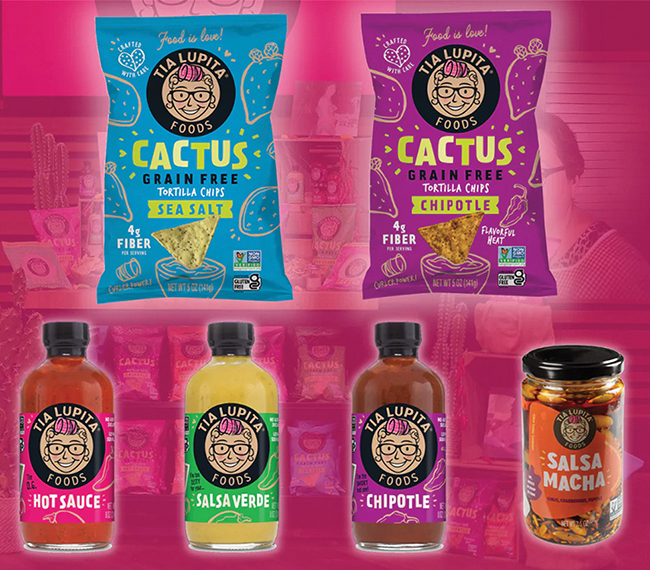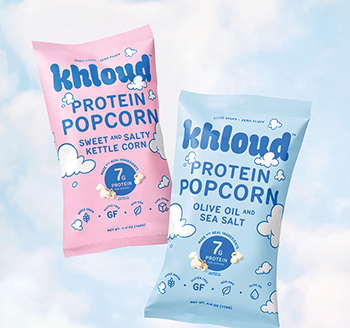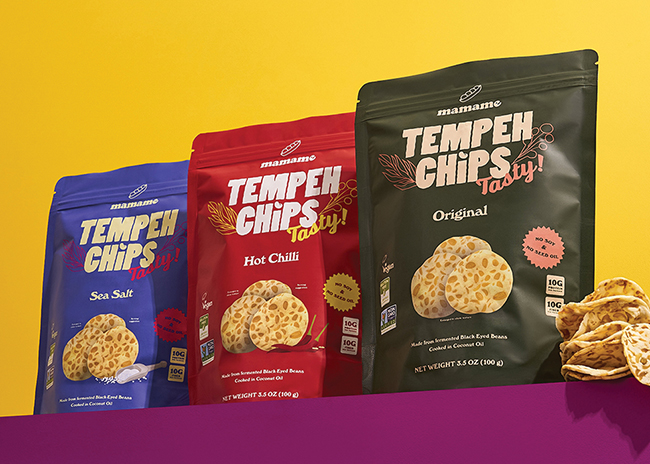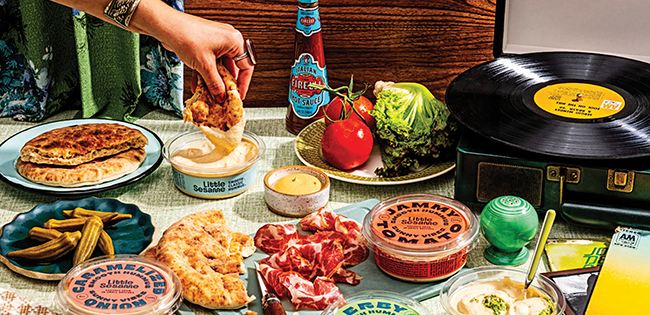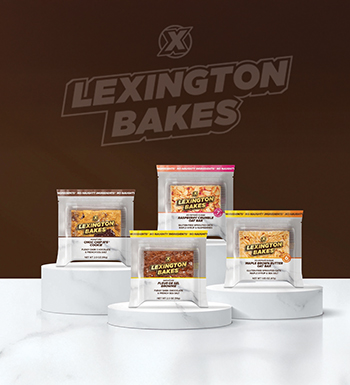NOSHscape: The Latest Food Brand News
Tia Lupita Acquired By Jumex Distributor Vilore Foods
Mexican food brand Tia Lupita announced on July 21 it had been acquired by Vilore Foods, the San Antonio, Texas-based distributor and commercial subsidiary of heritage food brands including La Costeña, Jumex and Totis. Founder Héctor Saldivar and the rest of the Tia Lupita team will stay on board to continue leading the brand, per terms of the deal.
“I’m thrilled that Tia Lupita Foods is joining the Vilore Foods family,” said Saldivar, in a press release. “Vilore Foods understands the cultural roots that drive our brand and has the reach and experience to take our products to even more shelves and kitchens across the country.”
The deal will expand market access for Tia Lupita products – which includes grain-free cactus tortilla chips, hot sauce and Mexican chili crunch – further across the U.S. and bring the brand into the Mexican market, Saldivar said in a LinkedIn post.
For Vilore – which operates a variety of packaged food brands including Jumex and Kern’s juice-based beverages, Pronto sweetened condensed milks, Congelli gelatin and flan mixes and milk modifier Choco Milk – the addition of Tia Lupita marks its official entry into the natural food space.
“This acquisition signifies Vilore Foods’ powerhouse expertise in distributing and championing Hispanic food brands in the U.S. market,” said Edgar Vargas, director of growth and brand development for Vilore Foods, in a release. “As more U.S. households seek trusted and authentic culturally connected products, we’ve kept an eye on the growth and potential of Tia Lupita Foods and believe this partnership will take the brand to the next level.”
Vilore already owns and operates two brands with similar product portfolios to Tia Lupita: Totis, which makes chicharones, cheese puffs and chips, as well as La Costena which sells salsas, sauces, and condiments. The addition of Tia Lupita brings a health-focused alternative to Vilore’s lineup that encompasses gluten-free, non-GMO and no-preservative products.
As evidenced by PepsiCo’s recent $1.2 billion acquisition of better-for-you, Mexican-American food brand Siete, consumer demand is growing for grain-free, clean label alternatives in the Hispanic food category. Premium tortilla chip and salsa brand Xochitl was also acquired last year, joining the growing portfolio of PE firm Forward Consumer Partners, while SOMOS Foods has raised over $3 million in the less than five years since its inception.
Founded in 2018, California-based Tia Lupita has steadily gained momentum in the market. expanding to over 5,000 doors nationwide spanning natural, conventional and mass channel retailers. The company has raised about $4.5 million to-date, last closing a $2.6 million seed roundin 2023 with all funding coming from Mexican investment institutions including lead investors Santatera Capital and GBM Ventures.
That same year, the brand also appeared on “Shark Tank,” securing a $500,000 line of credit at 12.5% interest from Kevin O’Leary (aka Mr. Wonderful), who took a 5% non-dilutible equity stake in the business.
“Congratulations to Hector and the team at Tia Lupita on being acquired by Vilore Foods,” said O’Leary, in the press release. “From day one, I believed in your mission to bring healthier, authentic Mexican flavors to the table, and you delivered. You built a brand that resonates with modern consumers while honoring tradition. This acquisition by Vilore Foods is a perfect match and a powerful validation of everything you’ve worked for.”
Kardashian Protein Popcorn Brand Muscles Into More Retailers
Within a few months of its late-April launch, Khloé Kardashian’s snack brand Khloud Protein Popcorn has expanded into more than 2,500 retail doors nationwide, including Target and Sprouts Farmers Market stores.
Additional distribution was planned for Wegmans, Raley’s, ShopRite and CIBO Express in July. The products also are available online on Thrive Market, GoPuff and the brand’s direct-to-consumer website.
Early traction has outpaced projections, said Jessica Lungariello, chief commercial officer, in an emailed interview with Nosh.
“Many Target stores sold out within days, and Khloud outperformed other salty snacks by over 150%,” Lungariello said. “As we expand into new retail doors, it’s clear Khloud is resonating with consumers and that more and more shoppers are craving snacks that are both functional and delicious.”
The products are seasoned with a proprietary powdery substance called “Khloud Dust,” which contains a blend of milk proteins. Flavors include Olive Oil & Sea Salt, Sweet & Salty Kettle Corn and White Cheddar flavors. A serving delivers 7 grams of protein. A 5 oz. bag retails for $4.99 at Target.com.
Lungariello said the team plans to support new retail launches with a “mix of founder engagement, on-the-ground sizzle, smart digital marketing, and strong in-store execution.”
She added, “It’s not just about getting Khloud on shelves; it’s about building real buzz around our product and showcasing the value proposition that has proven to be incredibly compelling to today’s snack consumer.”
Longer term, the startup’s go-to-market strategy centers on “meeting consumers where they are, especially in moments when delicious, functional snacks are hardest to find,” Lungariello said, pointing to opportunities beyond traditional retail channels.
Ahead of its debut, Los Angeles-based Khloud raised $12.5 million in equity funding, per a filing with the U.S. Securities and Commission (SEC) in June. Investors include Serena Ventures, K5 Global, William Morris Endeavor and Shrug Capital, according to a TechCrunch report. Springdale Ventures also participated in the funding round.
Bryan Baum, a serial tech entrepreneur and co-founder of K5 Global, is listed as CEO of Khloud on the SEC filing.
Mamame Raises $2M To Fuel Expansion in Modern Tempeh Snacks
Tempeh snack maker Mamame Whole Foods has raised $2 million in a funding round led by Granite Asia, a multi-asset investment platform headquartered in Singapore.
The family-owned and operated startup has translated a centuries-old superfood into a modern on-the-go snack that entered the U.S. market last fall. The brand’s line of tempeh chips is made with black-eyed peas, coconut oil, tapioca flour and a beneficial fungus that ferments the beans. Varieties include Original, Sea Salt, Hot Chili, Rosemary, Cheese and Barbecue.
The patented recipe is free from soy and seed oils, and a serving delivers more protein and fiber (3 grams of protein and 3 grams of fiber per 28g serving) than leading conventional potato chips (2 grams of protein and 1 gram of fiber), according to the company.
Mamame Tempeh Chips are available in multiple international markets including the United Kingdom, Germany, Lithuania, Singapore, Korea, Portugal and Hungary. The company’s retail partners in North America include Erewhon, Mother’s Market, Bristol Farms and Metropolitan Market, in addition to corporate offices including Meta. The brand also was available at Sprouts Farmers Market nationwide for a quarterly rotation in the innovation set earlier this year.
In its raw block form, tempeh is a regional staple with limited mainstream adoption, says founder Liz Kang, a former media sales executive who launched the business two years ago with her mother, Alvina Chun.
“By putting tempeh through a production line that can transform this raw ingredient into a protein-packed chip, we’re able to reach a massively incremental customer base,” Kang said in a statement. “We see tempeh as a commercial cousin to acai, akin to the raw acai berry-to-blended-smoothie-bowl pipeline.”
The new funding enables the company to quadruple its production capacity as it expands to meet burgeoning private label demand, adding a 60,000 sq. ft. facility to its existing manufacturing operations in Indonesia, near some of its raw ingredient suppliers.
A key focus area for Granite Asia is food systems and sustainability; the firm previously backed plant milk maker Oatside. Jenny Lee, senior managing partner, described Mamame Whole Foods as a “category-defining brand” that brings together “authentic storytelling, nutritional innovation, and a clear understanding of today’s consumer.”
Still, low consumer awareness in the U.S. remains a major hurdle for the mother-daughter duo.
“Tempeh is the national food of Indonesia. It’s been around for centuries, and academics say that it has a longer history than that of tofu,” Kang told Nosh, adding that, while tofu is widely familiar in the U.S., tempeh is not.
She continued, “These are whole fermented beans that carry all of the protein claims, the fiber claims, and even the probiotic properties of tempeh in this snack form. We really like to break it down for people and see their reaction. But nothing beats their reaction until they’ve put it in their mouth.”
Little Sesame Raises $8.5M Series A To Scale Hummus Production
Hummus maker Little Sesame closed a $8.5 million Series A funding round led by InvestEco Capital with participation from Watchfire Ventures, Santatera Capital, Beliade Consumer Partners, and other prominent individual industry investors.
The company will use the capital to expand manufacturing capabilities, with plans to open a 23,000 sq. ft. production facility by the end of the year. The new site, which includes a test kitchen and an in-house high-pressure processing operation, will significantly increase the brand’s production capacity.
“When we opened up our first factory in 2022, we were producing 1,000 lbs of hummus per week. Today, that number is 80,000 lbs per week, and by the end of the year, we expect to be producing upwards of 100,000 lbs of hummus a week,” Nick Wiseman, CEO and co-founder, told Nosh via email.
The increased capacity is expected to support the company’s mission to scale partnerships with regenerative chickpea farmers and transition 10,000 acres to regenerative management by 2027.
“From day one, we’ve sourced our organic American-grown chickpeas from Casey Bailey, a pioneer in regenerative agriculture in Montana; as our business needs have grown, we’ve since expanded to other farmers in the area, but all of them farm regeneratively, meaning the way they farm actually improves soil health and the environment over time. It’s not just about better hummus, but a better food system,” Wiseman said.
Additionally, Little Sesame will invest in new product development, including an expansion of its Hummus for Kids line, which debuted last year in lunchbox-ready on-the-go cups.
“Given the initial success and interest we saw, we plan to expand the kids’ line and also are exploring other extensions into healthy snacking,” Wiseman said. “Seasonal flavors have also become a big part of how we keep things fresh and exciting at Little Sesame. After the success of Golden Garlic and Green Goddess this spring, we brought back our fan-favorite Mexican Street Corn for summer. We’re now working on our biggest brand collab yet for the next seasonal flavor, dropping by the end of this year and look forward to sharing more soon.”
The Washington, D.C.-based startup has scaled its retail footprint to nearly 3,000 stores nationwide, including Sprouts Farmers Market, Whole Foods Market, Wegmans, Foxtrot, Erewhon and more. Last year alone, the company added more than 1,000 new retail doors while also securing partnerships with online grocers Misfits Market and Imperfect Foods.
Beyond retail, Little Sesame is building a presence in the foodservice market, Wiseman said, citing limited-time offerings at Call Your Mother, Blackseed Bagels and Birdcall, as well as a partnership with Sweetgreen as the primary supplier for its hummus crunch salad.
The latest funding will also support new additions to the team, Wiseman said. In January, the company tapped Oatly North America executive Drew Martin as its new chief commercial officer.
“We’re excited to be adding talented new people up and down our organization; we’re people-powered, and this capital allows us to build a deeper team that can help us deliver the highest quality product, disrupt the category and scale into a household brand,” Wiseman said.
Hummus and refrigerated dips have become an increasingly competitive category. Little Sesame has contributed 46% of category growth at Whole Foods Market in the past year and stands out as an organic, Clean Label Project certified offering that relies only on squeezed lemon juice as its preservative, Wiseman said.
“Consumers consistently say we’re the best-tasting store-bought hummus available,” he added. “Our fine dining restaurant roots have informed our approach to manufacturing and quality even as we grow.”
He continued, “As we like to say, we’re founded and made by chefs. Our hummus is freshly spun in small batches at our own facility just outside D.C., giving us full control over quality and eliminating the need for co-packers.”
Lexington Bakes Raises $1M To Scale ‘Like A Media Company’
California-based Lexington Bakes has raised $1 million in a funding round led by VC firm Rainfall Ventures. The new cash will support the business as it scales up with a new co-packing partner, pipeline of retail launches and growing team that has been strategically built via agencies, contractors and fractional help.
“What I’m most excited about is being able to say yes to more opportunities,” founder, CEO and chef Lex Evan told Nosh. “What I’m most stressed about is saying yes to more opportunities, but that’s the trajectory.”
Aligning with Rainfall has provided the brand with strategic support as well, Evan said. He said that one of his investors has become “acting CMO” and meets with him on a monthly basis to pressure test ideas and marketing approaches as he works to build Lexington Bakes as a content or media company that “just happens to have products… I feel like that’s the future of any brand – so much of marketing has become social media.”
The luxury baked goods brand marks Rainfall’s second packaged food investment, Evan said; the firm previously allocated cash to fellow Los Angeles-based brand The Real Cereal Company, however, it has also made a handful of investments in food tech companies including alt-protein business Simulate, parent company
of NUGGS.
“Tom [Binder], who’s the founder of Real Cereal, introduced me to Ron [Rofe], the [general partner] of Rainfall, when I announced I was fundraising a couple of months ago,” Evan explained. “They happen to be [based] in West Hollywood, which is where I live. So we got coffee a couple times and talked about the vision for the brand. Ultimately, he [said], ‘we love the brand, but we’re investing
in you.”
Evan worked as a brand designer and strategist at Johnson & Johnson for 10 years prior to jumping full-time into the bakery business. He emphasized that he has “studied people for 20 years,” and those learnings stuck out to Rofe as he assessed Evan’s approach to building his business, including his strategy toward hiring.
“A million dollars seems like a lot, but in the world of CPG, it’s not,” Evan said. “[Rainfall said] ‘We know that you can do so much more with that than a lot of other founders because you don’t have to go out and hire someone for
every function.’”
Now with a check in hand, Evan has onboarded a part-time designer to help handle some of his own workload, in addition to two agencies – one to manage email marketing and 203 Media, a guerilla-style marketing agency that will produce on-the-street interviews for the brand’s social media pages. Lexington Bakes’ first hire, however, was a community marketing manager.
“We are building a community to market this brand, and that’s what it is,” he said about his thinking behind the role. “It’s not just influencers. It’s not just creators. We can invite our fans to be a part of this, too. [The community marketing manager] is someone to manage all of those marketing efforts under one umbrella.”
But one key function will remain in house: social media. Evan said he “hired and fired an agency within a week” after having extensive conversations about his idea and vision for content, but was quickly delivered lackluster results.
“I’ve realized that I need to just own that myself and hire people to execute my ideas,” he said. “I have endless lists of skits and series ideas to do, which leads me to the YouTube show that I’m starting to develop…. ultimately I want that YouTube show to go to Netflix in a couple years…. no one else is thinking about the brand funnel to Netflix, [but] I’m building that pipeline.”
Evan said in the meantime, social media marketing efforts are primarily rooted in engaging between 25 to 50 influencers or creators around a specific goal each month. For Pride month in June, it gifted its Cocoa Crunch Bar collaboration with So Gay to 50 influencers and collectively reached a potential audience of 50 million people, he said; “It was a really powerful group.”
As the brand geared up for a rollout to Chicago-area Mariano’s stores, Evan had another activation with local creators already underway, aimed at creating content that will build awareness for the brand as it rolls out in the region.
Those efforts will put Lexington Bakes in a strong position as it continues to test, learn and expand its reach. The brand is currently sold in 100 stores but has its eye on reaching 1,000 doors over the next 12 months.
Retail growth will be supported by a distribution deal with KeHE, and the company is now active in two of its distribution centers in addition to working with two regional distributors in California.
In order to meet the demand of those retail partnerships, Lexington Bakes has onboarded with its first co-packing partner and is expecting to complete a final scale trial run for its brownie and cookie products in the coming weeks. By September, Evan expects the manufacturer will be producing about half of the company’s SKUs.
For Evan, who has primarily self-manufactured his products since launching the brand over three years ago, the manufacturing shift gave the business a significant boost as it scales up to meet current market demands. Evan said he is considering also hiring a part-time individual to manage operations at the co-manufacturing plant once the partnership is completely up and running.
In the meantime, however, he is still workshopping how to produce the brand’s highest-volume, “hero” platform: its recently launched Chilled Oat Bars. The product’s browned butter ingredient presents a safety issue for most large-scale production facilities, he said, leading him to consider a variety of possible solutions, including tweaking the ingredients.
“[We’re] working on more flavors and expanding that,” he said. “We officially have an indulgent platform and a nutritious [platform]. Eventually we’ll have granola bars, or oat and seed bars, which will bump up the protein – the oat bars are doing phenomenally in retail.”
The 2-SKU line held the No. 1 and No. 2 best-selling fresh snack products on Good Eggs for two months, he said, beating out competitors such as Yes Bar, Mid-Day Squares and Go Macro. Evan credits those “insane velocities” to a “really strong launch promo” and emphasized that over the next eight months he is focused on running “micro tests” to continue evaluating pricing and discounting strategies in order to replicate those results with every retail roll out.
“I’ve learned so much in the last couple of years that when I launched the oat bars, I just knew how to tweak the formulas to be more aligned with what consumers are looking for,” Evan said. “I knew more about the pricing strategy – it’s almost like I was able to relaunch the business with so much more learning, but now I can tweak that learning and apply it to the brownies and the cookies for the future.”


Receive your free magazine!
Join thousands of other food and beverage professionals who utilize BevNET Magazine to stay up-to-date on current trends and news within the food and beverage world.
Receive your free copy of the magazine 6x per year in digital or print and utilize insights on consumer behavior, brand growth, category volume, and trend forecasting.
Subscribe